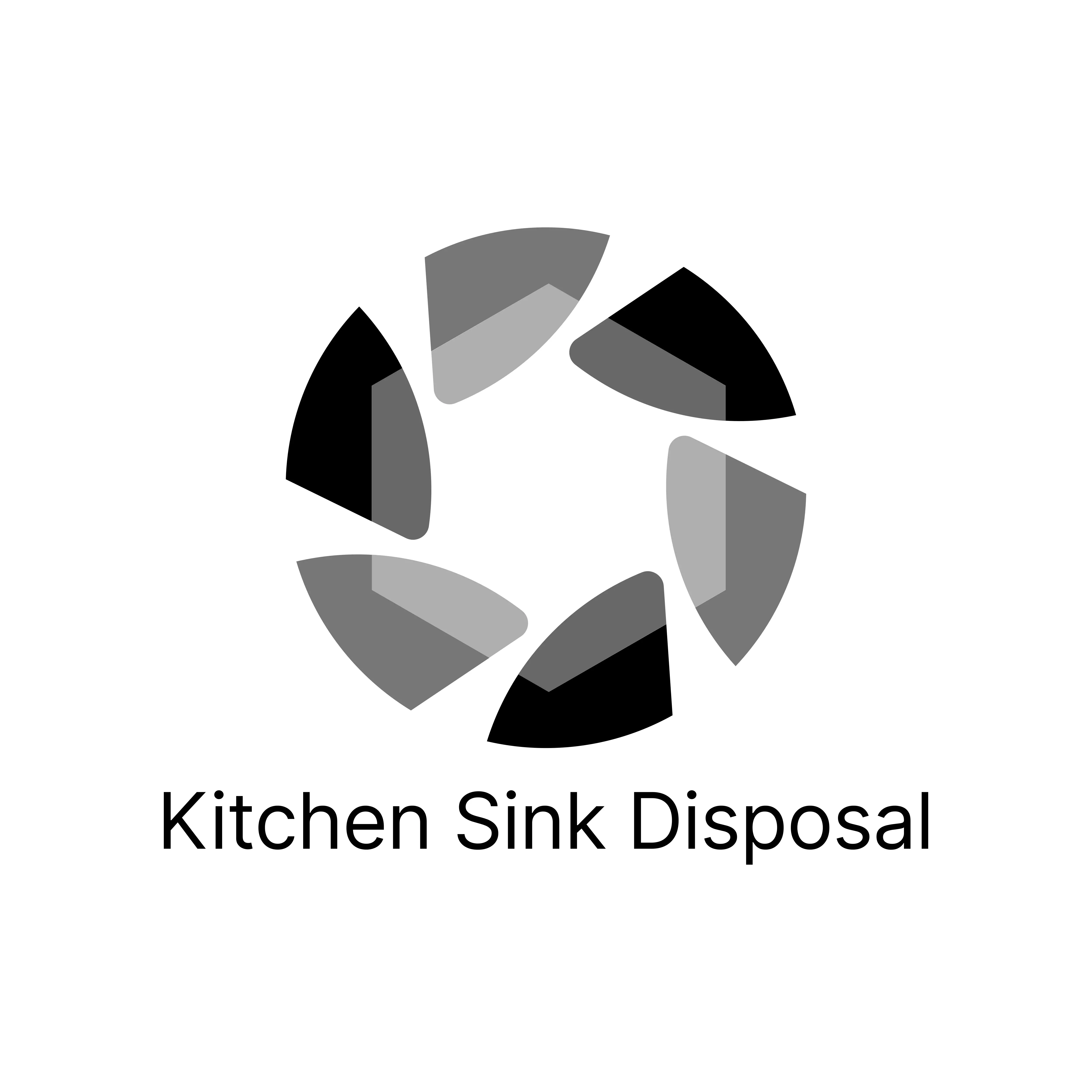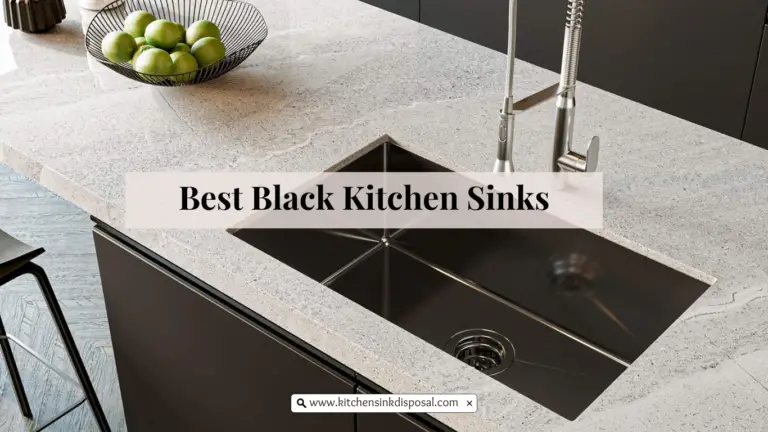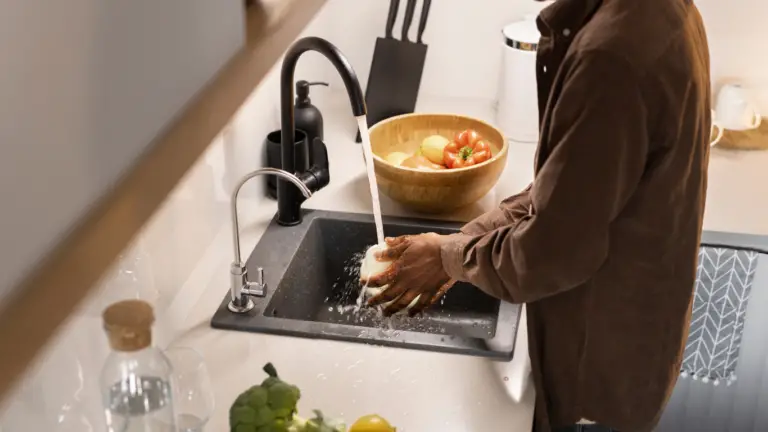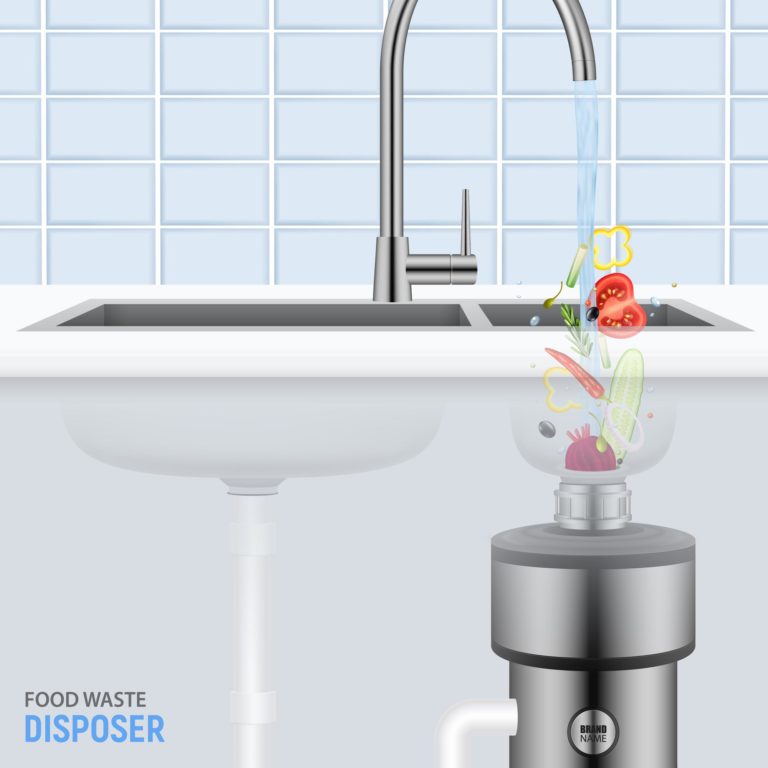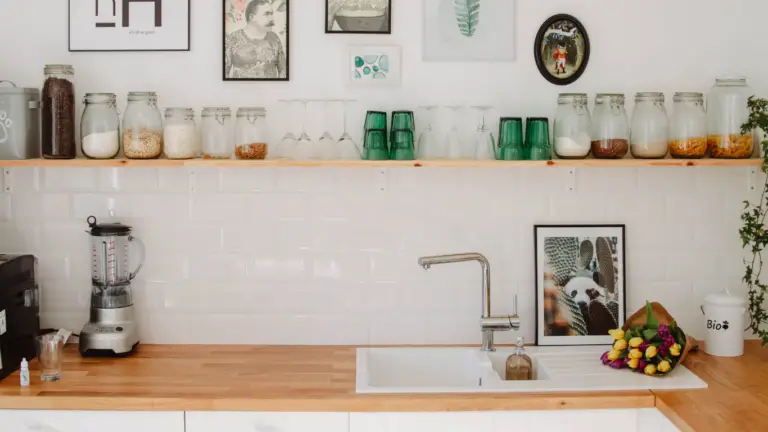Pros and Cons of Porcelain kitchen sinks
This post may contain affiliate links which means I may receive a commission for purchases made through links.
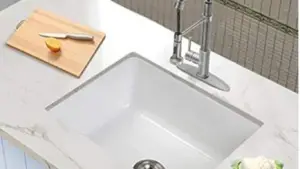
If you’re looking for a new kitchen sink for your home, there are several materials you can choose from such as stainless steel, enamel, cast iron, and more. Also, porcelain has performed extremely well in kitchen sinks for several years. To be precise, porcelain sinks have been used to add practicality and style to all types of kitchens since the early 1900s. Surprisingly, porcelain has remained a popular kitchen sink material to this day, thanks to its durability, design versatility, heat & cold resistance, non-porous surface, and easy-to-clean nature. But does this necessarily mean porcelain is the best kitchen material? Well, let’s explore some pros and cons of porcelain kitchen sinks to help you determine if it’s the right sink material for your home!
Pros of Porcelain kitchen sinks
-
Easy to clean
Porcelain kitchen sinks are extremely easy to clean as you only need water and dish detergent. Even better, they’re resistant to chopping, cracking, and staining, making them the best option for busy families as they require low maintenance. Moreover, these sinks do not show water spots or fingerprints and resist stains from kitchen ingredients like tea and coffee.
Another interesting thing about porcelain sinks is that they’re hypoallergenic. Therefore, they will not harbor bacteria and other allergens, making them the ideal option for families with pets and young kids.
However, you’ll want to avoid scouring pads, abrasive cleaners, and harsh scrubbers like steel wool when cleaning your porcelain sink to avoid dulling or removing any finish.
-
Highly durable
Overall, porcelain sinks can retain their functionality and beauty for several decades when well cared for. After all, they’re from a hard, non-porous material that is resistant to chipping, stains, and scratches. Specifically, porcelain consists of minerals, clay, and other ingredients that are pressed and heated at high temperatures, resulting in an extremely durable, dense ceramic material. Moreover, this makes it an excellent choice for those who entertain frequently or in busy households.
However, despite being incredibly durable, porcelain can stain or chip under certain conditions, for instance, if you drop a cast iron pan or another heavy item, it may chip the surface. Also, water with high-iron content may build up and create a reddish or brown stain on the sink. To avoid that, make sure you wipe away any liquid or food residues and rinse the sink thoroughly instead of allowing them to sit on the surface for long periods. Alternatively, you can try removing these stains yourself with household solutions like baking soda, vinegar, lemon, or laundry powders.
-
Heat & cold resistant
Another notable benefit of porcelain kitchen sinks is that they’re both heat- and cold-resistant. Therefore, you can safely put hot pans and pots directly on your sink without damaging it.
As mentioned earlier, porcelain is fired at extremely high temperatures of about 1230 deg C (2300 deg F). Interestingly, even the highest cooking temperatures do not come close to this range. As a result, your sink will have exceptional heat resistance when it comes into contact with hot items. Even better, this means that the sink will not contract or expand due to temperature fluctuations that may cause it to crack.
In addition, porcelain does not fade or change its appearance when it’s exposed to lots of sunlight as it is UV-resistant. This will come in handy if you want to install the sink directly in front or under a kitchen. After all, if you’re anything like me, you need that natural sunlight and nice scenic views when washing dishes or cleaning up!
-
Quiter
Some kitchen sink materials like stainless steel can be particularly noisy and distracting when cleaning up or preparing food in the sink. However, that’s not the case with porcelain kitchen sinks. Instead, high-quality porcelain sinks are good at muffling sounds and absorbing vibrations, thanks to their thick, dense nature.
-
Ideal for various types of kitchen sinks
Porcelain is an excellent material for different types of kitchen sinks including drop-ins, top-mounts, and farmhouse sinks. In addition, porcelain can be molded into various shapes and is available in several colors. So, while white porcelain sinks are classic, you can select from a wide range of porcelain styles and colors. That way, you can easily complement any fixtures, countertops, cabinets, backsplashes, and other desired kitchen design elements.
However, porcelain may not be the best material for under-mount sinks due to its heavy weight, but more on that later while looking at the cons of porcelain sinks.
Cons of porcelain kitchen sink
-
Expensive
In general, porcelain kitchen sinks are more costly to buy and install than other types of sinks. However, if you want a kitchen material that will improve the appearance and increase the value of your home, porcelain is a sound investment. Also, as I mentioned earlier, these sinks can last an incredibly long time with proper care and maintenance.
-
Heavy
Lastly, some kitchen sink configurations and installations like under mount can be a bit challenging with porcelain. This is because porcelain is extremely heavy than other common kitchen sink materials like stainless steel. Also, you need to be very careful to avoid dropping the sink during installation regardless of the configurations you use. Similarly, you should be cautious when washing glassware and dishes as they can easily shatter or break in the sink due to the heaviness and density of porcelain.
Conclusion
To sum up, porcelain is a great kitchen sink material as it’s easy to clean, durable, and looks great in any kitchen. So, if you’re looking for a new kitchen sink, you can consider investing in a porcelain sink. However, porcelain sinks have their fair share of drawbacks as well. For instance, they’re expensive and heavy, limiting their use in some sink configurations. Other than that, if you’re not on a budget, they’re an excellent choice for upgrading your kitchen and increasing your home’s value.
